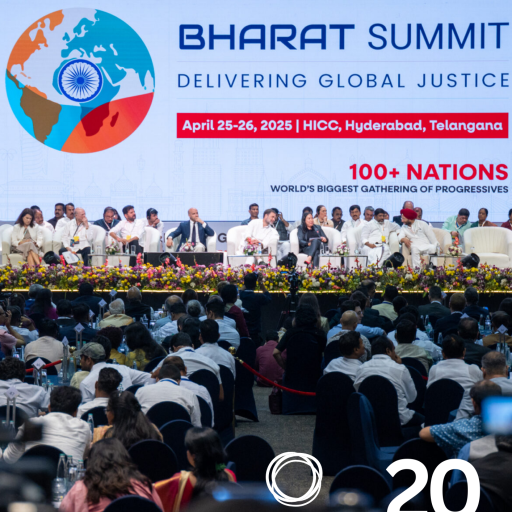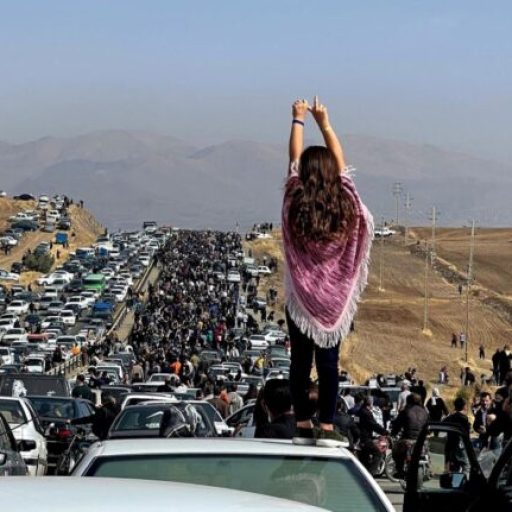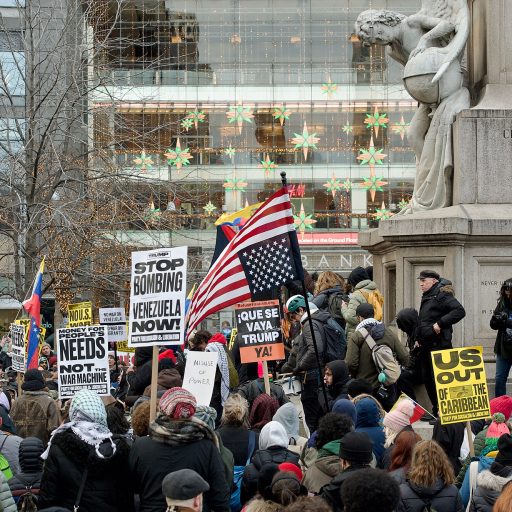12 October 2018
Social justice is a prerequisite for a lasting peace and beneficial coexistence. All people ought to be able to develop their potential without let or hindrance, regardless of their nationality, migration background, skin colour, religion, disability, gender or sexual orientation. Yet people in different parts of the world neither have the same life opportunities nor is wealth distributed in anything like an equitable manner. One’s background is not only decisive for one’s prospects in life but also in terms of social mobility. Therefore, any future safe, orderly and regular migration must also be socially equitable.
Neoliberal globalisation has resulted in greater inequality
The eight richest people in the world own as much as the poorest 3.6 billion – half of humanity! One per cent of the world’s population owns more than the remaining 99 per cent together! The deregulation of employment and financial markets, the concentration of wealth and a self-enrichment mindset among the already privileged, capital-friendly taxation systems including tax avoidance and – in the past, rarely prosecuted – tax evasion practices, an extreme shareholder-value orientation, the decoupling of economic growth and material wellbeing, the employment income differential, a lack of education and training opportunities: the trends and structures that are resulting in greater inequality are unmistakeable – as are their consequences. The global north is also home to some of the losers of neoliberalism, whose incomes are stagnating whilst the one per cent are profiting from global growth processes to a downright obscene degree.
However, the neoliberal redistribution from the “bottom” to the “top” has not only produced globalisation losers in the northern hemisphere: people in many countries in the global south have been affected in a much more brutal manner, for it was there that the methods of neoliberalism were first trialled in the context of so-called structural adjustment programmes. Policies designed to promote privatisation and restrict social expenditure resulted in impoverishment and increasingly precarious living conditions. The privatisation of education leads to a situation in which access to a good education is dependent upon one’s social or ethnic background, domicile or other factors.
Labour migration is a symptom of inequality
Labour migration is often the symptom of inequalities caused by neoliberal globalisation. According to International Labour Organization (ILO) estimates, some 150 million of the 258 million international migrants are labour migrants on the lookout for ways to facilitate a better life for themselves and their families. Most migrants do this in a safe and orderly manner, yet precisely those people who are forced to leave their families to secure their existence are often exploited and robbed of their human rights. According to the ILO, during the past five years 89 million people have become the victims of modern slavery in one form or another for periods ranging from just a few days to five years! In addition, they are often required to pay steep recruitment costs, which drive them into financial dependency.
Organise safe, orderly and regular migration in a socially equitable manner!
People have a right to remain in their home regions, to which end their livelihoods and rights must be protected. Redistribution from the bottom to the top must be reversed and capitalistic property ownership, power and hegemonial relationships called into question, as these are the primary causes of the destruction of natural livelihoods, which is forcing people all over the world to leave their homelands. Any social justice perspective must consider those privileges that are derived solely from one’s affiliation with specific regions or social groups whilst, at the same time, promoting international solidarity between the losers of globalisation. Racism and the hatred of supposed outsiders must be opposed.
In addition to the right to remain, we must also defend the right to free movement and mobility, as migration is the oldest strategy for the reduction of poverty and improvement of living conditions. What is required in this context is a new paradigm in which migration is accepted as an adaptive strategy, and which focuses on the improvement of migrants’ living and working situations and is aimed at reforming global migration policy and includes participation by states in the global south.
Far from impeding development, migration is often a prerequisite for it. For many years, temporary migration has been the fastest growing form of migration, and money transferred by migrants back to their homelands is becoming an increasingly important economic factor. The migrants’ families in their country of origin frequently use these monies not only to raise themselves out of poverty, but to gain access to education and training as well as improved health care services. In addition, migrants can become the disseminators of new knowledge and technological developments.
At the same time, however, migration can increase inequality and promote brain drain. Precisely because migration is a complex phenomenon, it will be important to ensure that future migration schemes are developed with the participation of countries in the global south, whereas it has mostly been the case to date that northern states have been the sole arbitrators of what is considered »desirable« and »undesirable« migration.
Like all workers, labour migrants have a right to fair treatment. This is a key element of social cohesion as well as for the sustainable development of societies.
Labour migration organised in a fair and effective manner involves opportunities for those affected as well as their families and the host countries. It contributes towards the equalisation of labour supply and demand, but requires qualifications meaning that the overall qualification level is increased.
Labour migrants pay into social security systems and contribute towards the cultural and social enrichment of the host societies.
Well organised labour migration means regulating inter-regional migration corridors and promoting inter-state cooperation. The Global Compact for Safe, Orderly and Regular Migration provides a framework for cooperation whilst the international labour standards, especially the Declaration on Fundamental Principles and Rights at Work, in addition to the relevant ILO and UN conventions form the foundations. States ought to make more use of two ILO instruments known as the Multilateral Framework on Labour Migration and General Principles and Operational Guidelines for Fair Recruitment.
The organisation of global mobility in the 21st century is a task for the international community and must not be left to vagaries of free market forces. Access to social mobility must be oriented on people’s needs rather than exclusively on corporate interests.
Hence our call:
- We are calling on all governments to implement the Global Compact for Safe, Orderly and Regular Migration in compliance with international law at all levels – international, regional, national and community.
- We need strong trade unions which collaborate at an international level to stand against transnational corporations to change these intolerable conditions and to create more stable social framework conditions, including for all workers, for most migrants are workers.
- We need strong trade unions, which increase solidarity between workers regardless of nationality, migration background, skin colour, religion, disability, gender or sexual orientation and mobilise them to take up the common trade-union struggle.
- We need to create jobs that are commensurate with human dignity, because decent work will make an essential contribution to the struggle against poverty. We are fighting for the implementation of the ILO’s Decent Work Agenda and the institutionalisation and implementation of the core working standards on site. Closely associated with this is the question of corporate responsibility for social and ecological standards.
- The ILO Guidelines for the Fair Organisation of Labour Migration must be implemented at all levels – global, regional and national. Labour migrants must no longer be left to the mercy of unethical labour practices.
- Employment markets in the southern hemisphere are characterised by a large percentage of informal jobs, which, for many migrants without official papers, offer the only means of earning money. These workers too must be protected by states and trade unions and provided with routes back to legality.
- Finally, in many countries, also inside the European Union, supporting migrants and showing practical solidarity has become illegal. European governments have been pushing to stop NGOs and their ships (SOS Méditerranée and Aquarius) to continue to safe human lives in the Mediterranean Sea. We stand against the argument that humanitarian aid would be contributing to human trafficking. We stand strongly against the criminalization of humanitarian aid. Humanitarian problems need solidarity and humanitarian solutions.




![Headline: Hier bitte das Thema [ Headline] 24.10.25, Lucerne, Switzerland, Progressive Alliance PA women conference](https://progressive-alliance.info/wp-content/uploads/elementor/thumbs/MAW251024mw859033AdobeRGB-scaled-recq0qxu9kb6pncdi2i7wo6ttne03ppnu58zxxdc74.jpg)
![Headline: Hier bitte das Thema [ Headline] 25.10.25, Lucerne, Switzerland, Progressive Alliance PA women conference](https://progressive-alliance.info/wp-content/uploads/elementor/thumbs/MAW251025mw860402AdobeRGB-scaled-recs8kegm3kqlleif2kq512xsjz2qfl3t7kc0t0tts.jpg)